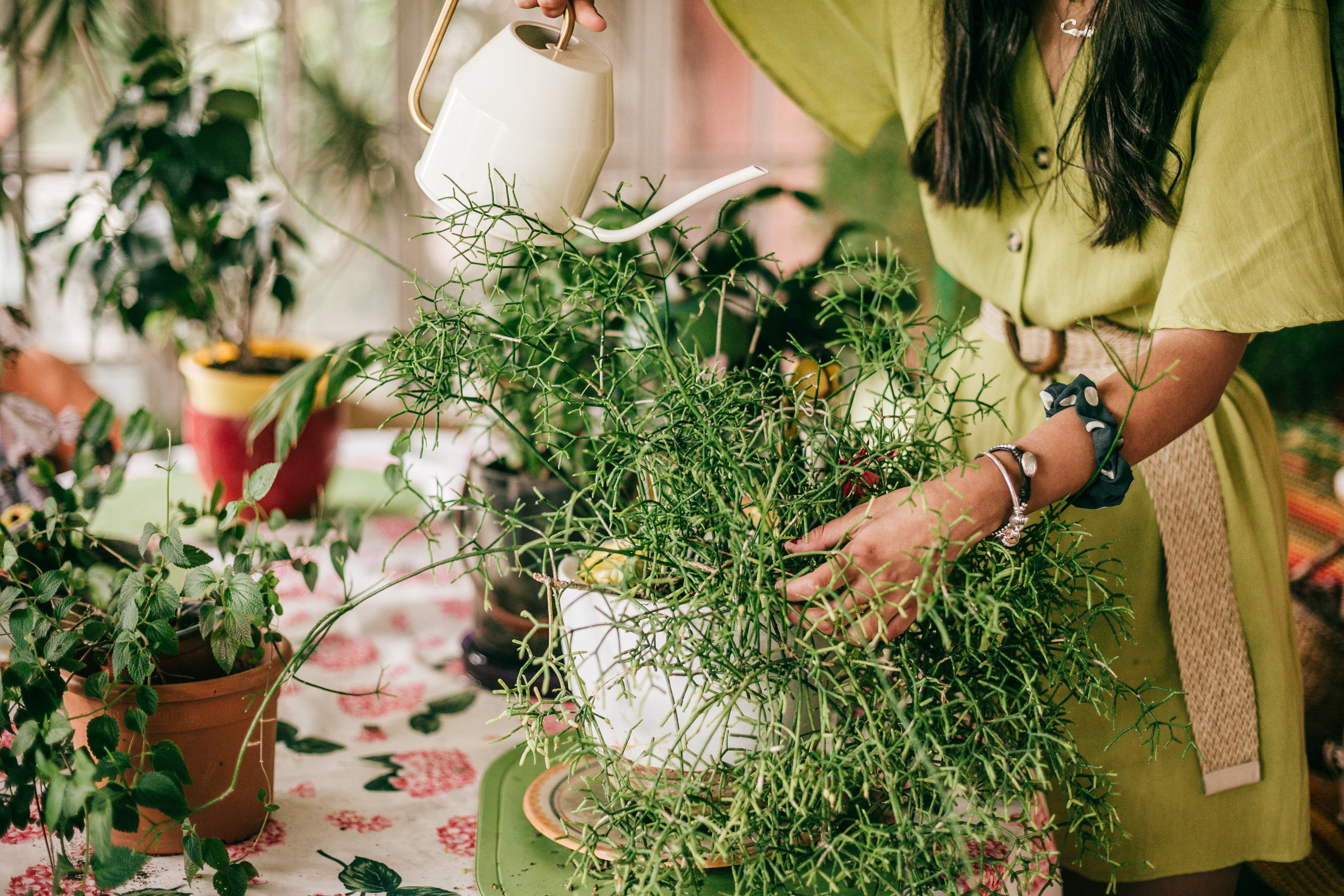The plant peeps of TikTok have been losing their minds over Costco’s plant offerings, and while scoring an 8-foot statement palm for less than $30 seems like a total green thumb win, you might want to slow your stroll and examine what you’re purchasing before heading to the checkout line. Due to the high volume of plants coming into these types of big box stores, they might not be getting the specialized care that they need—besides, who actually thrives under fluorescent lighting anyways? So I’m encouraging you to look under the hood—I mean, brown paper sleeve—before taking anything back home (this rule applies no matter where you shop btw).
With the most recent Costco stock lists including towering topical varieties such as Majesty Palm and White Bird of Paradise at 6-8 feet and only $27.99, there have also been reports of fiddle leaf figs ranging from $15-$50. That’s a steal compared to the larger $100-200 price tag at a smaller nursery supply shops. While we always encourage you to support small businesses and shop locally, we can’t scold you for wanting a deal—especially if you’re an eager plant parent on a budget with a growing collection. That being said, we want to spare you the possibility of bringing home pest-ridden or diseased botanicals that could potentially affect the health of all your other houseplants.
Use this cheat sheet as a checklist next time you’re browsing houseplants between bites of frozen aisle food samples—impulse plant shopping, especially when hangry, is a dangerous thing and here’s to setting yourself up for success back home.
Get to the Roots
If you can, gently remove plants from their container and do a proper root inspection. Always be mindful of potential breakage and handle plants by the base and not by the trunk or stem. Healthy roots are firm and white, not mushy and brown. Avoid plants that have become rootbound with a dense mass of circling roots—if needed, you might need to loosen and transplant them into a larger pot once home.
Health Check
Fresh growth and vibrant glossy leaves are all good first signs of health. Take a moment to comb through leaves and see if there’s any damage, discoloration, yellow browning leaves or wilting. Push any less-than-perfect plants to the side and look for something better. Infrequent watering, oddball lighting, and cramped inventory are all working against these plants. Unless you want to be a full time caretaker nursing botanicals back to health, it’s best to start with the healthiest stock and save yourself the trouble.
Pest Inspect
Bad bugs love to hitch a ride from the grower and multiply in less than ideal conditions. This is where inspecting with a fine tooth comb is critical, checking under leaves and even in the soil for any unusual activity. Discoloration, sticky leaves, webbing, or small gnats hiding in the soil are all signs to pass on the plant. Even if you’ve had success curing minor pests in the past, there is no reason to bring home infected plants that will ultimately spread to others.
Freshness Is Key
Get the scoop from an employee when weekly shipments are delivered—buying from a fresh batch will increase the odds of survival back home. Don’t be shy to shuffle pots around either. Oftentimes older plants are moved to the outer edges with hopes they will be purchased sooner, so push through and take the extra time to find the best-looking plant.
Add to Cart
Houseplants not looking so fresh? Don’t cave to the pressure of low-prices and look for other botanical delights that Costco has to offer. We’ve had great luck with spring bulbs, dahlia tubers, bare root fruit trees, and blueberry bushes. Note: the checklist above still applies. Make sure everything looks fresh, shows signs of new growth, and if anything is in packaging, make sure it hasn’t sat on the shelf for too long or started to sprout.
Congratulations, now you’re an expert at plant selection! While you’re at it grab a hotdog, a few bags of organic potting mix and finally commit to adding that greenhouse you’ve always wanted.









